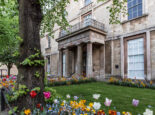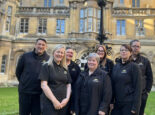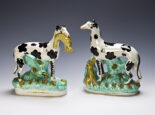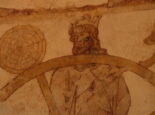Tell me a story
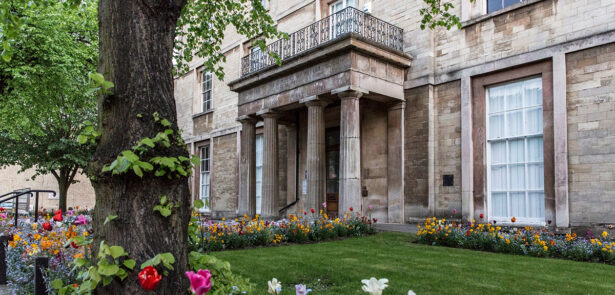
If you ever want to hunt for treasure in the city then head to Peterborough Museum: it’s chock-full of some of our most precious resources in the form of archaeological finds, historical artefacts, important documents – and of course, our stories...
‘It’s worth its weight in gold’ is a wonderfully evocative phrase used to describe something that
you could never really put a price on, and in few places is this more apt than Peterborough Museum’s archive of first- hand and original-source documents – a vast treasure-trove of real-life stories from across the centuries, giving us glimpses into the everyday life of our families, our streets, schools and homes.
“The first step is opening the stories to the public and sharing the memories. It will also support schools in delivering the local curriculum and, through lots of different channels, encourage more information, more stories that help piece the jigsaw like story of Peterborough together,” explains the museum’s Heritage Manager, Sarah Wilson.
And as stories go, Peterborough has some of the biggest and the best. We hit the ground running in 1122 AD with the Anglo Saxon Chronicles – an ambitious history of England from the birth of Christ onwards, written by the monks of what was then Peterborough Abbey. They weren’t the only ones writing and recording stuff in this way – monks at other religious centres throughout the country were writing their own accounts – but Peterborough’s did go on to become one of the four ‘distinct versions’ we have, and a unique source for information about our island history and language between 1066 and the 14th century. Although Peterborough’s Anglo Saxon Chronicle is now kept at the Bodleian Library in Oxford, it was part of an exhibition here at the Museum between 2018 and 2019.
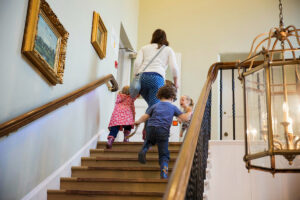 Peterborough took centre stage yet again during the English Civil War (1642-1651) when Oliver Cromwell was garrisoned in buildings next to the Cathedral after taking what had been, up until then, a Royalist city with relative ease – despite the fact he concussed himself on a low arch while riding into the Precincts! Fast-forward 153 years to the era of the Napoleonic Wars, to Norman Cross, where Peterborough had the dubious honour of hosting the world’s first purpose-built prisoner-of-war camp. There’s a gallery at the Museum dedicated to objects from the camp – in particular some of the amazingly intricate carvings, models and ornaments made by the incarcerated men.
Peterborough took centre stage yet again during the English Civil War (1642-1651) when Oliver Cromwell was garrisoned in buildings next to the Cathedral after taking what had been, up until then, a Royalist city with relative ease – despite the fact he concussed himself on a low arch while riding into the Precincts! Fast-forward 153 years to the era of the Napoleonic Wars, to Norman Cross, where Peterborough had the dubious honour of hosting the world’s first purpose-built prisoner-of-war camp. There’s a gallery at the Museum dedicated to objects from the camp – in particular some of the amazingly intricate carvings, models and ornaments made by the incarcerated men.
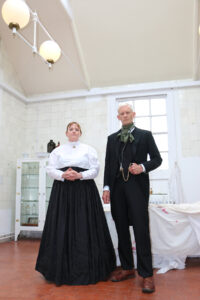 In between all of this and so much more, Peterborians have lived through the ordinary and extraordinary, experiencing history as it happened, recording and relaying it via letters, talking to one other, writing in newspapers and in books. It’s this patchwork of real-life experiences that makes up some of the most fascinating and important insights we have into how our ancestors lived, day to day – what they thought, what they did, and how they helped to make history.
In between all of this and so much more, Peterborians have lived through the ordinary and extraordinary, experiencing history as it happened, recording and relaying it via letters, talking to one other, writing in newspapers and in books. It’s this patchwork of real-life experiences that makes up some of the most fascinating and important insights we have into how our ancestors lived, day to day – what they thought, what they did, and how they helped to make history.
Now, the Museum – itself part of our story as a former Victorian hospital by way of a Georgian mansion and a Tudor house – is beginning a new and potentially epic initiative, digitising and sharing extracts from the many hundreds of articles, books, recollections and documents of record they have access to, giving a vivid glimpse into the past. Stories range from fragments of 18th century theatre posters to scandalous court reports, births, deaths and marriages, riots, robberies and royal visits – and even a UFO sighting!
“It’s not perfect,” adds Sarah. “More memories need to be collected and shared reflecting the global city Peterborough is today, and greater awareness is needed about the city’s heritage as evidenced in the achievements and contributions of past and present citizens. So much of this can be found in our fantastic collections, the city’s-built heritage and archaeological remains.”
Our city stories need YOU!
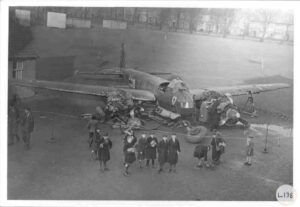 And this, dear The Moment reader, is where you come in. As well as sharing and enjoying the stories that Peterborough Museum are publishing online (already available to begin reading at peterboroughmuseum.opacweb.io/en/) about the city and surrounding area, the team is also putting out the call for citizen stories. What do you and your family remember from times gone by? Did anyone you know work at one of the big Peterborough institutions like Perkins
And this, dear The Moment reader, is where you come in. As well as sharing and enjoying the stories that Peterborough Museum are publishing online (already available to begin reading at peterboroughmuseum.opacweb.io/en/) about the city and surrounding area, the team is also putting out the call for citizen stories. What do you and your family remember from times gone by? Did anyone you know work at one of the big Peterborough institutions like Perkins
or Thomas Cook, or have you got any old diaries or newspapers stashed away in the attic? Nothing is too big or too small – our city history belongs to all residents past and present, and it’s us that make it what it is.
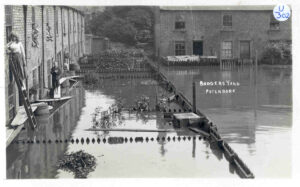 If you’d like to share your true stories of Peterborough with the team at Peterborough Museum, and maybe even see them join the collection and get published online, email in the first instance including as much source material/references as you can, and a member of museum staff will get in touch.
If you’d like to share your true stories of Peterborough with the team at Peterborough Museum, and maybe even see them join the collection and get published online, email in the first instance including as much source material/references as you can, and a member of museum staff will get in touch.
There’s so much we know already about our shared heritage – but so much still to find out. Staff at the Museum are looking forward to bringing you with them on their journey of discovery, whether you contribute or simply enjoy reading and sharing.
Snapshots of Peterborough history
1859 – What the Dickens?
The Peterborough Advertiser reviews a live performance by mega-star Victorian author Charles Dickens, who had just visited Peterborough to give a reading (one of several throughout his life) from his novels The Pickwick Papers and Dombey & Son.
The journalist reports that: ‘Our emotions seem to be at the command of a potent magician, who, at will shakes us with laughter or moves us to tears.’ We know that Dickens was also pretty pleased with how the night went, as he wrote in a letter to a friend: ‘We had a splendid rush last night; I think the finest I have ever read to. It was as fine an instance of thorough absorption in a fiction as any of us are likely to see again.’ (This positive experience of the city didn’t stop Dickens from basing the hideous workhouse from Oliver Twist on the one that stood on Westgate at the time, the Wortley Almshouses…)
1998 – A haunting in Westwood
To a much more recent event, within living memory for many of us: sightings of a ghostly airman in a family home in Westwood over a two-year period. The Evening Telegraph reports the father of the family as saying:
‘I could not make him out clearly but he seemed about 30 years old, and he was wearing a blue-black airman’s uniform. He walked straight by me. I don’t know why but I followed him. I watched as he walked down the stairs and then, when he got to the front door, he disappeared. I wasn’t scared – but it worried my wife.’
Become a history detective
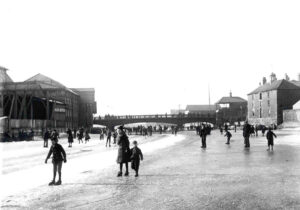
A really good way to become a history detective is to simply ask people among your friends and family what they remember, and whether or not they took any photographs or kept any mementoes or press clippings. Original source material – that is, people’s testimonies, contemporary reports and pictures – are some of the best ways we have of confirming something we might already suspect, or unearthing something new altogether. We can also study new evidence alongside established facts, giving us fresh insight – or even turning what we thought we knew completely on its head!
If you or anyone you know has a true story to tell about life in bygone Peterborough (even relatively recent), do share it with the team at
History mystery – can YOU help solve it?
There are some puzzles even the team at Peterborough Museum can’t solve – and that’s why they’re throwing this one out to anyone who might be able to come up with missing pieces of information involving the building itself.
“You know, a big gap for us relates to the history of the museum as a hospital,” says Sarah. “We have just one black- and-white image of the interior of the building – and that’s it! We have no testimonies from patients, either, just records, and even with those there isn’t much to go on.”
“However, one of our biggest mysteries is this: the money to build the operating theatre was gifted by some patrons known only as ‘the Heliotrope Sisters’. Who on earth were they?”
No clue is too small, no detail too insignificant! If you know who the enigmatic benefactors, the Heliotrope Sisters, were; or if you have any records, pictures or testimonies tucked away from the time when Peterborough Museum was a hospital – get in touch, and help solve the mystery!








